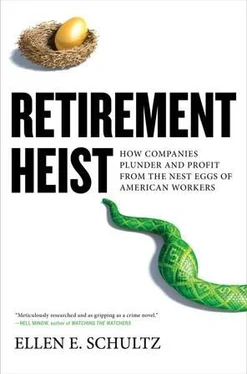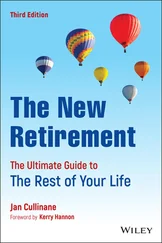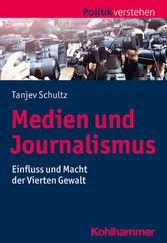The market plunge had smoked out accounting innovations at Enron, Lucent, Nortel, Tyco, Waste Management, and WorldCom, most of which involved management efforts to bump up the share price by manipulating earnings. Many of these practices involved “accrual accounting,” i.e., the way companies report such things as debts and reserves. Retiree benefits are a form of accrual accounting, too, subject to the same manipulation but not to the same scrutiny. [9] In 2003, the Securities and Exchange Commission began investigating whether companies were using retiree plans to manage earnings. It sent subpoenas to Boeing, Delphi, Ford Motor, General Motors, Navistar International, and Northwest Airlines, asking the companies whether they had used pension and health-benefit funds to adjust their earnings in recent years. The companies said “Of course not,” and the investigation fizzled out. The SEC was focusing on discount rates and other assumptions used to calculate liabilities, not the use of pension cuts and other maneuvers.
Chapter 4
HEALTH SCARE
Inflating Retiree Health Liabilities to Boost Profits
COMPANIES HAVE BEEN PLAYINGeven more elaborate games with their retiree health plans. These health plans are essentially medical pensions that employers have promised to decades of workers. If someone worked long enough to earn retiree health benefits, then, when he retired at fifty-five or later, his employer’s medical plan would continue to cover him until he qualified for Medicare at age sixty-five. Some plans, particularly for unions, provided a Medicare supplement, covering things like prescription drugs.
And then, in 1992, companies began sending letters to hundreds of thousands of retirees, all of which contained eerily similar messages: “Health care costs continue to skyrocket,” wrote McDonnell Douglas. Health care costs were “skyrocketing,” wrote R.R. Donnelley. In these letters, Sears, Caterpillar, Unisys, and scores of other employers, citing “spiraling” health care costs, all informed retirees that, regretfully, they had no choice but to cut benefits.
The companies blamed a new accounting rule—FAS 106—for the changes. The rule was similar to the one employers had adopted with pensions a few years earlier in that it required companies to estimate their obligations for the health coverage they would provide to retirees—current and future—and report the obligation to shareholders. When the companies did this, they claimed to be shocked to find that the costs were so high. This, they said, called for hard choices, and regretfully, they would have to cut benefits. It was a matter of survival.
Though corporate America acted as though it had just discovered it was sitting on a neutron bomb, CFOs knew well ahead of time what the charges would be. Major companies, including IBM and GE, had worked with the Financial Accounting Standards Board (FASB) to create the rules, as they had with the pension rules, and had persuaded the accounting board to build in as much flexibility as possible. As with pensions, companies had substantial leeway to raise or lower their obligations by changing the assumptions they used, including interest rates, expected returns on assets, employee turnover, marriage rates, retirement age, and mortality rates. But companies had another powerful lever for manipulating the numbers: the health care inflation assumption (also known as a “health care trend rate”). Despite its name, this isn’t an actual measure of inflation in the cost of hospital stays, premiums, or prescription drugs. Rather, it’s simply a company’s estimate of the increase in what it might pay, based on undisclosed factors. In other words, they can pretty much make it up.
With so much control over the size of the liability, one might expect employers to use a low health care inflation rate, since this would make their obligations look smaller. But many companies did just the opposite, choosing to assume that double-digit health care inflation would persist for decades. They did this even though most experts at the time believed that the worst period of health care inflation was over and the rate of increase was declining, thanks to the spread of managed-care programs, which were intended to reduce unnecessary health care costs. (By 1995, in fact, health care costs were flat, before trending upward again.) Among the pessimists who continued to predict steady inflation were Kimberly-Clark (16 percent), Teledyne (11.5 percent), and Allied-Signal (12 percent).
These high inflation assumptions, combined with other assumptions, including that benefits plans would never change and that the retirees would live a really long time, led to whopping obligations. As the companies had hoped, the media was awash in stories about this new, unexpected threat to the viability of the nation’s largest companies. A sample from late 1991: “Automakers Face Massive Charges” (Associated Press); “Rude Awakening on Health Costs…. The numbers are shocking many” ( Los Angeles Times ); “New Medical-Benefits Accounting Rule Seen Wounding Profits, Hurting Shares” ( The Wall Street Journal ). The industry-funded Employee Benefit Research Institute estimated that the total impact on companies could be as great as $2 trillion.
There was little downside to putting huge retiree liabilities on their books. Securities analysts and shareholders tend to ignore earnings hits that are the result of accounting changes that all companies must adopt. Speaking candidly to consultants at an actuarial conference in 1996, Ethan Kra, then the chief retirement actuary at William M. Mercer, summed up Wall Street’s sentiment: “The Street views FAS 106 obligations as ephemeral.”
Reporting a giant retiree liability was also an opportunity for some big-bath accounting, a process in which publicly traded companies pile a lot of bad items into a single year, so subsequent years’ income will look better by comparison. It could also be called “you can’t fall off the floor” accounting. Expecting costs from layoffs? Need to write off that bad loan? Doing badly anyway? Get all the bad news out of the way at once, so when net income rises in subsequent quarters, even if only a little, management will look like a hero for turning things around.
McDonnell Douglas was one of the first companies to claim the sky was falling. In 1991, the giant aerospace-and-defense contractor lost a lucrative Department of Defense contract to develop a stealth aircraft because of perpetual delays and cost overruns. It was in need of an earnings lift, and FAS 106 came at a fortuitous time. McDonnell Douglas adopted the new accounting rule in January 1992, estimating that health care costs would rise 15 percent a year and that the benefits would remain unchanged. This produced a shocking obligation, for which the company took an immediate $1.5 billion after-tax charge.
But just nine months later, McDonnell Douglas pointed to those whopping costs and announced it would phase out all health coverage for its twenty thousand nonunion retirees. “Health care costs continue to skyrocket,” explained John McDonnell, then the company’s chief executive, in an October 7, 1992, letter to retirees, adding that there was also a new accounting standard that “threatened to deal a heavy blow to our bottom line.”
I’m writing to tell you we’ve found a solution. It may seem complicated at first glance, but, when all is said and done, you will have the same coverage under the new plan…. So here’s what we’re going to do. First, health care coverage provided by McDonnell Douglas to non-union retirees will end Dec. 31, of this year, and retirees are then responsible for obtaining and paying for their own coverage. BUT, second, as of that date, coverage identical to what you have had (but arranged by McDonnell Douglas, rather than provided by McDonnell Douglas) will be made available to you.
Читать дальше












